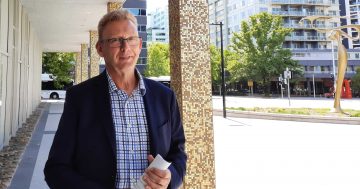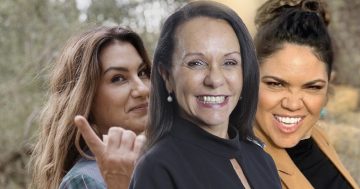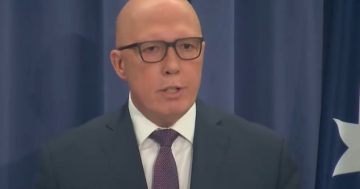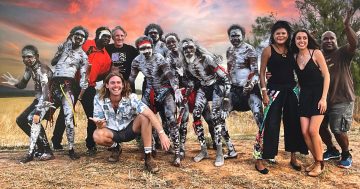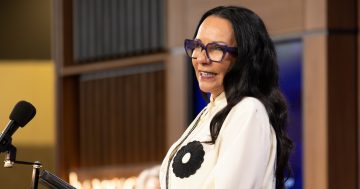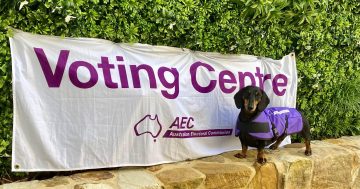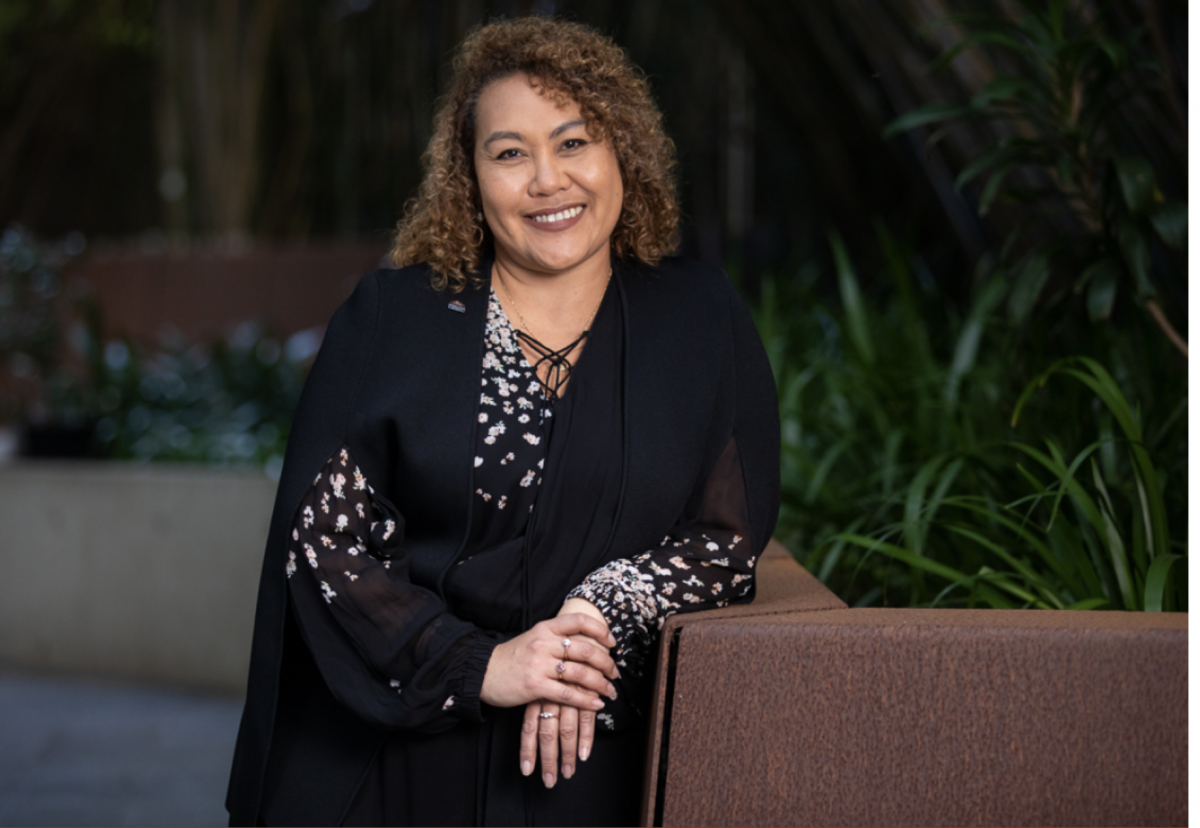
Karen Mundine is the CEO of Reconciliation Australia. Photo: Supplied.
It’s not long before Reconciliation Day and Karen Mundine, Reconciliation Australia’s CEO, is laughing about the prospect of warm hearts and cold feet at the Arboretum.
“I wore leather boots last year, but this year might be time for the hiking boots”, she says of the event that attracts thousands of good-natured Canberrans in conditions that are often sunny but decidedly brisk. She’s just off a plane from Adelaide, where 2000 people attended a Reconciliation Week breakfast event, with another 900 on the waiting list.
Reconciliation Week runs from 27 May to 3 June, and it’s an intensely busy time in an intensely busy year for the Bundjalung woman from northern NSW whose head office is at Old Parliament House.
“I can’t even begin to describe how much is going on this year. It’s a combination of the referendum, people coming out of the pandemic and wanting to gather together in person,” she says.
Karen’s ongoing work is “putting First Nations people front and centre in ways of thinking, doing and being about what it means to be Australians”.
But this year is, inescapably, the year of the Voice. The theme for Reconciliation Week is “Be a Voice for Generations”, and the seriousness of a proposed change to the constitution is first and foremost in her mind.
In March, she received the National Award in the annual Australian Awards for Excellence in Women’s Leadership.
In April, she was on the cover of the Australian Institute of Company Directors’ magazine after headlining a panel at the Australian Governance Summit that included Simon McKeon, the chancellor of Melbourne University, a non-executive director of NAB and Rio Tinto and a former AMP chair.
It’s an indicator of the seriousness with which corporate Australia is taking the referendum and that’s heartening for longtime reconciliation campaigners.
Mundine’s uncle, Warren, is a leading voice in the No campaign and she says opinions will vary, although not perhaps to the extent currently depicted in the media.
“At a national scale, we ask people to consider and think about this seriously, because we all get a say on changing the constitution,” she says, adding it’s important to remember that while it’s not universal, the large majority of Aboriginal and Torres Strait Islander people are supportive of the Voice.
Less positively, she expresses deep disappointment at the tenor of some of the current conversation, describing herself as ”saddened” but not surprised at the uptick in racism incidents around the Voice, especially online.
“It’s really important we don’t suggest this is solely because of the debate around the Voice, or that people aren’t entitled to their opinions,” she says.
“I honestly believe the great majority of Australians are people of goodwill and good intentions around reconciliation, because otherwise why would I keep getting up in the mornings?
“But without doubt, we have people participating in the troll activity who are congregating around the debate. [Aboriginal] people will have a range of emotional reactions to the racial abuse – pain, frustration, real hurt and harm. It’s a reinforcement you’re not valued in this society and it takes a lot of resilience on anyone’s part to cope with that.
“If you’re in the public eye, you do have to take a lot on board. But what worries me is the impact of pretty vile comments directed at ordinary First Nations Australians, going about their business, who see value in the Voice for their communities.”
Karen would prefer the debate to be less political and more community-focused, expressing frustration that the Voice is so consistently viewed through the lens of government and politics. She believes the media story is shaped by the need to find conflict, rather than a more nuanced conversation about how it would work and why it’s important.
“At the end of the day, this is about the Australian people and how they choose to recognise First Nations people in the constitution,” she says.
Karen thinks Reconciliation Week can be a time for a pause and self-reflection, even in the midst of intense national debate.
“The theme is, be a voice for generations. It’s all about honouring people who came before and did hard work to get to this point. Each of us can do something today, in this moment, to create better outcomes for the future.
“Honour the past, make a better tomorrow, continue to discuss reconciliation and how people can get involved, celebrate with supporters and allies, challenge yourselves to be better allies. That’s a good outcome.”













